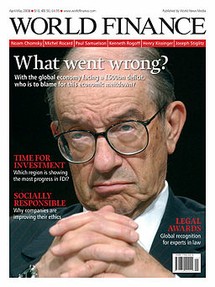In my previous article The Livability Factor – A Healthier Alternative For The Retired Wealth Investor, I talked about the Livability Factor and why it was an important aspect for retired investors to take into consideration in their investment planning. I referred to the Livability Factor as an investor’s ability to comfortably endure the difficult times so that they are around to enjoy the good times. The livability factor focuses on the emotional needs of the investor, allowing him or her to stay in the game through the rough times so that they will be around to enjoy the good times.
Sadly, many investors do not stay long enough in the game to reap the rewards of their investment labor and quit before reaching the profit line.

Conservative Or Aggressive Investment – How Should Retired Investors Proceed?
Investment Advice For Your Retirement Income
Why Do Many Investors Quit? – The Retired Investor Scare
I believe there are two main reasons why investors quit:
A prolonged plunge in the value of the account that is greater than the investor can handle, can cause an investor to quit.
 At some point the investor is going to start getting nervous. If the account continues to go down further, chances are, that nervousness will turn into panic. For instance, an investor that is very conservative might start getting nervous if the account drops 3-4%.
At some point the investor is going to start getting nervous. If the account continues to go down further, chances are, that nervousness will turn into panic. For instance, an investor that is very conservative might start getting nervous if the account drops 3-4%.
A more aggressive investor may start getting nervous when the account drops 10%. If the account is allowed to decline beyond these levels, the investor is going to have a hard time sticking with the program. Prolonged plunges in the account value of an investor can constitute a major investment scare.
The second reason that someone may quit is because they can’t stand volatility.
Financial markets usually experience seasons of calm and at other times they are turbulent. Volatility is when the account gyrates back and forth in a roller coaster type pattern. It may be a few percentages up one month, and the next month, it is a couple of percentages down. For instance, in 2011, we saw the market gyrate back and forth in a 7.5% range between January and July. Then it plunged about 20% and then gyrated up and down in a 15% range. In the same way an investor may become nervously afraid after a prolonged plunge, trying to endure a sideways market gyrating up and down can be very nerve wrecking and will no doubt cause some investors to quit.
Each person has their own point at which they change from being uncomfortable to being scared. We all do. But in order for you to enjoy the fruits of investments, you have to find the right way to stay in the game. That’s why the type of wealth management strategy that is employed in the daily management of your money is so important.
Who To Blame When Investors Take A Hit – The Private Wealth Management Dilema
I believe so many investors using the typical Wall Street System advisor sometimes become so  frustrated because their advisor gives them the impression that to be uncomfortable about an investment program will suggest that something is wrong with the investor!
frustrated because their advisor gives them the impression that to be uncomfortable about an investment program will suggest that something is wrong with the investor!
I take another approach to how these things should be perceived and addressed, and I also present a different philosophy on who to blame.
As a financial planner and private wealth manager, I believe you should be able to take the blame for an investor that quits. It should be your fault if the client gives up and quits or if they aren’t able to stay long in the game. As wealth management strategists, we should take responsibility because we didn’t correctly understand the investor’s limits.
Staying In The Game = Investing Your Retirement Income Conservatively
But supposing that the investor is not quitting and wants to continue in the game, how do you keep him comfortably through the different financial market cycles? The key in my opinion is to manage the investor’s account in a way that prevents prolonged plunges and the sideways market up and  down gyrations from happening in the first place. If the portfolio manager can keep the investor’s account within his or her comfort zone during those periods of market distress, then psychologically the investor will be ready to participate when times are good.
down gyrations from happening in the first place. If the portfolio manager can keep the investor’s account within his or her comfort zone during those periods of market distress, then psychologically the investor will be ready to participate when times are good.
As a private wealth manager, I have found it important to monitor my clients accounts closely and adjust the amount that is invested in the market, what it is invested in and EVEN WHEN IT SHOULDN’T BE INVESTED IN THE MARKETS. I do this on purpose, so that my clients can stay in their comfort zones and they can continue to stay in the game. If my clients trust that I am monitoring their accounts closely and staying on top of things, they can sleep well even when the market is crashing because they will know that their money isn’t.
You may have other questions for instance such as, what if the market goes up and we aren’t invested? Or, what if we miss a big run and lose all those gains? These are great questions, and ones which have unfortunately been systematically used by the WSS financial planners to hold investors prey! It is the fear of missing a big run that the traditional WSS advisor uses to try to sell you on buy, hold and suffer.
But things don’t have to be this way!
To find out why, watch out for my next article titled The Investment Climate for 2012 – What the Retired Investor Needs To Know in which I will discuss examples of why no investor should allow themselves to be drawn away out of fear of missing the big run.
About The Author
Jeff Voudrie is a Certified Financial Planner and nationally recognized financial advisor. Jeff has been in the financial industry for twenty-five years, and has been interviewed by The Wall Street Journal, CBS Marketwatch, Kiplinger's, The London Financial Times, The Christian Science Monitor, CFO.com and Financial Planning Magazine. For more information on Jeff, please visit: www.jeffvoudrie.com or www.commonsenseadvisors.com
Investing In 2012 For The Retired Wealth Investor - Jeff Voudrie Provides Some Useful Tips
You might also like
July 15th 2013 The Hostess Twinkie Makes The Sweetest Comeback...Hostess will be back and the stock and on your local store shelves this July ...
Best Money Saving TipsEffective money saving tips which are common sense but useful.



 2012 Investment Forecast – A Great Year For Retired Wealth Investorson 03/23/2012
2012 Investment Forecast – A Great Year For Retired Wealth Investorson 03/23/2012
 The Investment Climate for 2012 – What Every Retired Investor Needs To Knowon 03/23/2012
The Investment Climate for 2012 – What Every Retired Investor Needs To Knowon 03/23/2012
 The Livability Factor – A Healthier Alternative For The Retired Wealth Investoron 03/20/2012
The Livability Factor – A Healthier Alternative For The Retired Wealth Investoron 03/20/2012
 2012 - A Solemn Year For Retired Investors? ’Don’t Think Soon 03/20/2012
2012 - A Solemn Year For Retired Investors? ’Don’t Think Soon 03/20/2012


Comments